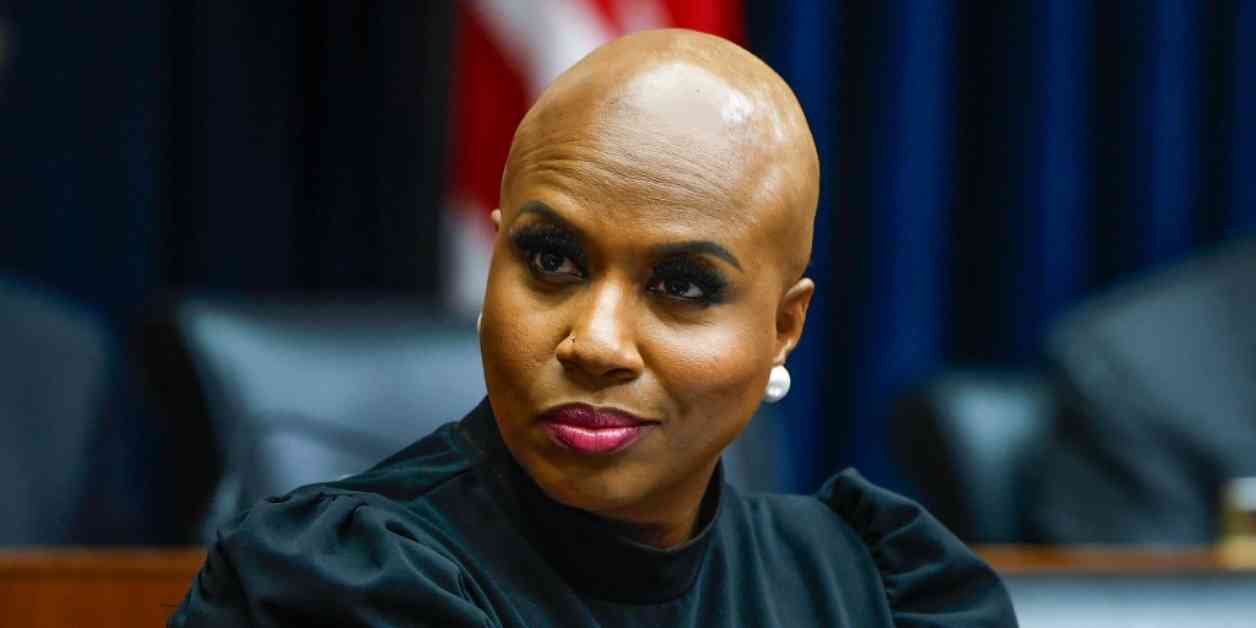The Food and Drug Administration (FDA) has come under scrutiny for delaying a proposal to ban hair-straightening chemicals that have been linked to increased rates of cancer. Democratic Reps. Ayanna Pressley of Massachusetts, Shontel Brown of Ohio, and Nydia Velazquez of New York have called out the agency for pushing back the target date to propose a ban on products containing formaldehyde, a chemical commonly found in salon-grade and at-home hair straighteners used by Black women.
The initial notice of a possible rule was given in 2023, with an initial target date set for April. However, this date was later moved to July and then further postponed to September. The letter from Pressley, Brown, and Velazquez, who are all facing re-election this year, demands specific reasons for the delay from FDA Commissioner Robert Califf.
Pressley emphasized the importance of addressing the health risks associated with hair straightening treatments, particularly for Black women who have historically faced discrimination based on their natural hair. These treatments have been seen as a way to conform to societal standards of beauty, but they come with potential risks to health, especially in communities of color.
The FDA’s slow progress in finalizing the proposed ban is not uncommon, as evidenced by the extended timeline for the draft of a proposed ban on menthol cigarettes. Despite the agency’s assurance that the proposed ban on hair straighteners remains a top priority, concerns persist about the timing and content of the proposal.
The use of chemical hair-straightening treatments has been a common practice among Black women and women of other ethnicities for decades. Many of these products contain formaldehyde, a chemical with known health risks that has been linked to uterine cancer in some studies. The National Institutes of Health reported an increased risk of uterine cancer among people who regularly use hair straighteners, while a study from Boston University found a significant risk increase for postmenopausal women who frequently used relaxers.
Lawsuits have been filed against beauty companies that manufacture hair straighteners, alleging that they misrepresented the health impacts of their products and exposed consumers to harmful chemicals. Some plaintiffs claim to have experienced infertility and increased risks of uterine and ovarian cancers as a result of using these products.
In response to growing concerns, the FDA has reminded the public through social media that no ban on hair straighteners is in place yet. The agency has expressed its intention to work with the cosmetics industry to develop alternative products that are safer for consumers.
Challenges and Advocacy
The delay in proposing a ban on hair-straightening chemicals highlights the challenges faced in regulating cosmetic products in the United States. Unlike drugs and medical devices, cosmetics are not subject to premarket approval by the FDA, which means that manufacturers are responsible for ensuring the safety of their products.
This lack of regulatory oversight has allowed potentially harmful ingredients like formaldehyde to remain in hair straighteners for years, putting consumers at risk of serious health consequences. The advocacy efforts of Reps. Pressley, Brown, and Velazquez shed light on the need for stricter regulations and better enforcement to protect public health.
Hair straightening treatments have long been a contentious issue within the Black community, where societal pressures often dictate beauty standards that may not align with natural hair textures. The use of chemical relaxers and straighteners has been a common practice among Black women seeking to achieve a more “professional” or “acceptable” appearance in the workplace.
However, the health risks associated with these treatments, particularly the presence of formaldehyde, have raised concerns about the long-term consequences for women’s health. The increased rates of cancer and other adverse effects linked to hair straighteners underscore the urgent need for regulatory action to protect consumers.
Health Disparities and Environmental Justice
The disproportionate impact of harmful chemicals in hair straightening products on communities of color reflects broader health disparities and environmental injustices in the United States. Black and Hispanic women are more likely to use chemical hair treatments and are therefore at a higher risk of exposure to toxic ingredients like formaldehyde.
The lack of access to safe and affordable alternatives to traditional hair straighteners further exacerbates these disparities, as marginalized communities may have limited options for maintaining their hair without resorting to harmful chemicals. Environmental justice advocates argue that low-income and minority populations bear the brunt of toxic exposures from beauty products and other consumer goods.
Efforts to ban formaldehyde and other harmful ingredients from hair straighteners are not only about protecting individual consumers but also about addressing systemic inequalities in the beauty industry. By holding manufacturers accountable for the safety of their products, regulators can help level the playing field for all consumers and promote greater transparency in the cosmetics market.
Industry Response and Consumer Awareness
In response to growing concerns about the safety of hair straightening products, some beauty companies have begun to offer alternative treatments that claim to be free of harmful chemicals like formaldehyde. Keratin treatments, which use protein-based formulas to straighten hair, have gained popularity as a safer alternative to traditional relaxers.
However, consumer advocacy groups warn that not all “chemical-free” or “organic” hair straightening products are as safe as they claim to be. Some manufacturers may still use hidden ingredients that pose health risks to consumers, underscoring the need for greater transparency and regulation in the beauty industry.
Consumer awareness plays a crucial role in ensuring the safety of hair care products and advocating for stricter regulations on toxic chemicals. By educating themselves about the potential risks of hair straighteners and other beauty treatments, consumers can make informed choices that protect their health and well-being.
As the FDA continues to work on finalizing the proposed ban on hair-straightening chemicals, it is essential for consumers to stay informed about the latest developments and advocate for stronger protections against harmful ingredients in cosmetic products. By working together to hold manufacturers accountable and demand safer alternatives, consumers can help create a more transparent and health-conscious beauty industry for all.

















